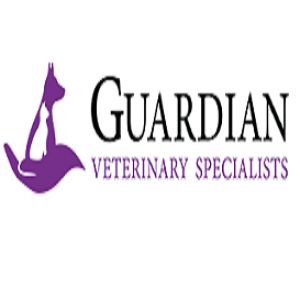Veterinarian Recommended Post-Surgery Care for Your DogPosted by Guardian Veterinary Specialists on October 19th, 2019 When we speak about post-surgery care for dogs, there are no set standards because every dog and surgery is different from the other. Care and attention after your dog’s surgery will differ from those of the others depending on the health condition, age, and the type of surgery conducted. It is normally seen that pets like to sleep and laze around for the initial 24 hours post-surgery and this is also very important for their complete healing. If you are unsure about what you should do to speed up your dog’s recovery post-surgery, probably talking to a veterinarian will help you to figure out exactly what you should be doing. Here are some important things that every veterinarian suggests you must do after your dog’s surgery.
‘Keeping your pet confined after the surgery will help them to recover speedily.’ Even the most minor of all surgeries can be pretty invasive, so it is crucial for the dog to rest properly by staying within the confines of home. Their activities should be restricted as this will allow the tissues to heal. If the dog moves too much there is a risk that the tissue will not bond properly. This can cause further complications such as infections. To make sure that your pet stays comfortable during the confinement, add blankets and bedding and make sure there is ample space for the pet to move around and stand. Apart from this, you must care for your pet by snuggling and talking to them as it will go a long way to speed up their recovery. ‘Post-surgery medications and home care should be provided in the right manner.’ Antibiotics will most likely be prescribed after your dog’s surgery to avoid infections and relieve pain. Simple and short procedures may not even require them as there are fewer chances of infection. However, medicines for pain may still be prescribed to high energy dogs so that they can rest post-surgery. Apart from this, medications to overcome anxiety may be prescribed to hyper breeds so that they can stay calm. Home remedies should not be resorted to without consulting a veterinarian as they may adversely affect your pet’s health condition. Surgeries involving bones and mass removals can be cared for by warm and cold compresses, only if recommended by the veterinarian. ‘Be watchful during the healing process and look out for infections.’ As far as the surgical incision is concerned, the best course of action is to let it heal on its own. However, it is important that you be watchful of the incision to ensure that it heals properly. If at any point, you notice the wound getting dirty or crusty, you must gently wipe it using a clean towel dipped in lukewarm water. Steer clear of peroxide and alcohol as they can extend the healing process. If the incision feels hot or hard to touch or is painful, it is also a cause of concern and must be addressed at the earliest. If you follow the aforementioned things carefully, nothing will supposedly go wrong after your dog’s surgery. Make sure that your dog doesn't lick, bite, or scratch the incision. Use an E-collar, if you must, to stop them from doing so. Follow the veterinarian’s advice as closely as possible and your dog will be up and about in no time at all. Like it? Share it!More by this author |



